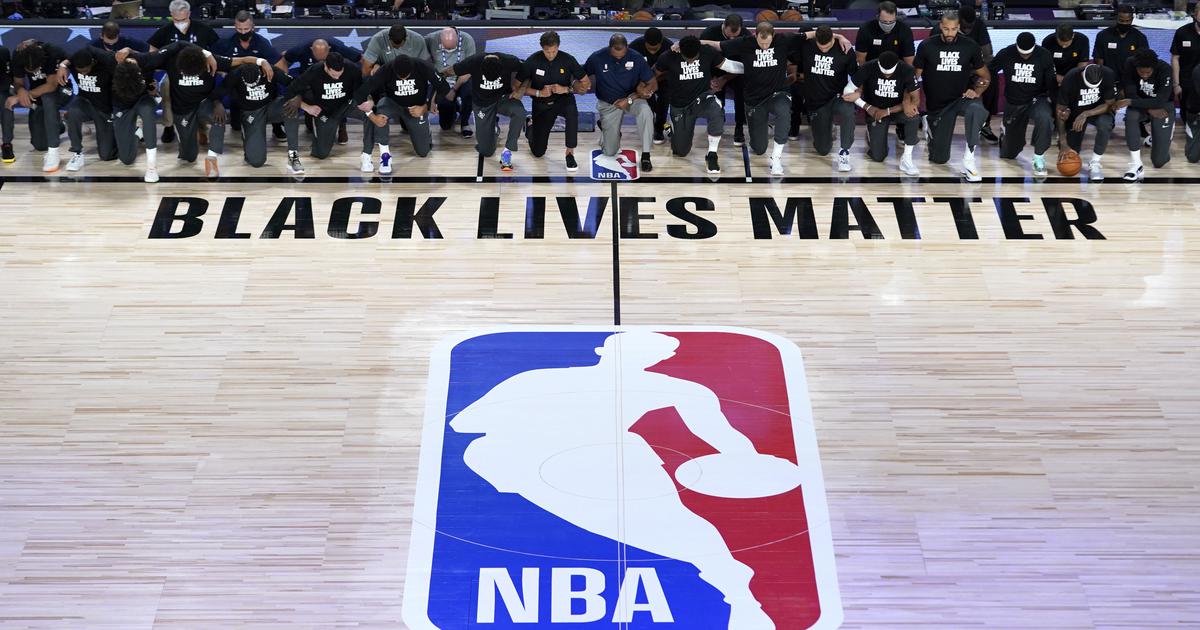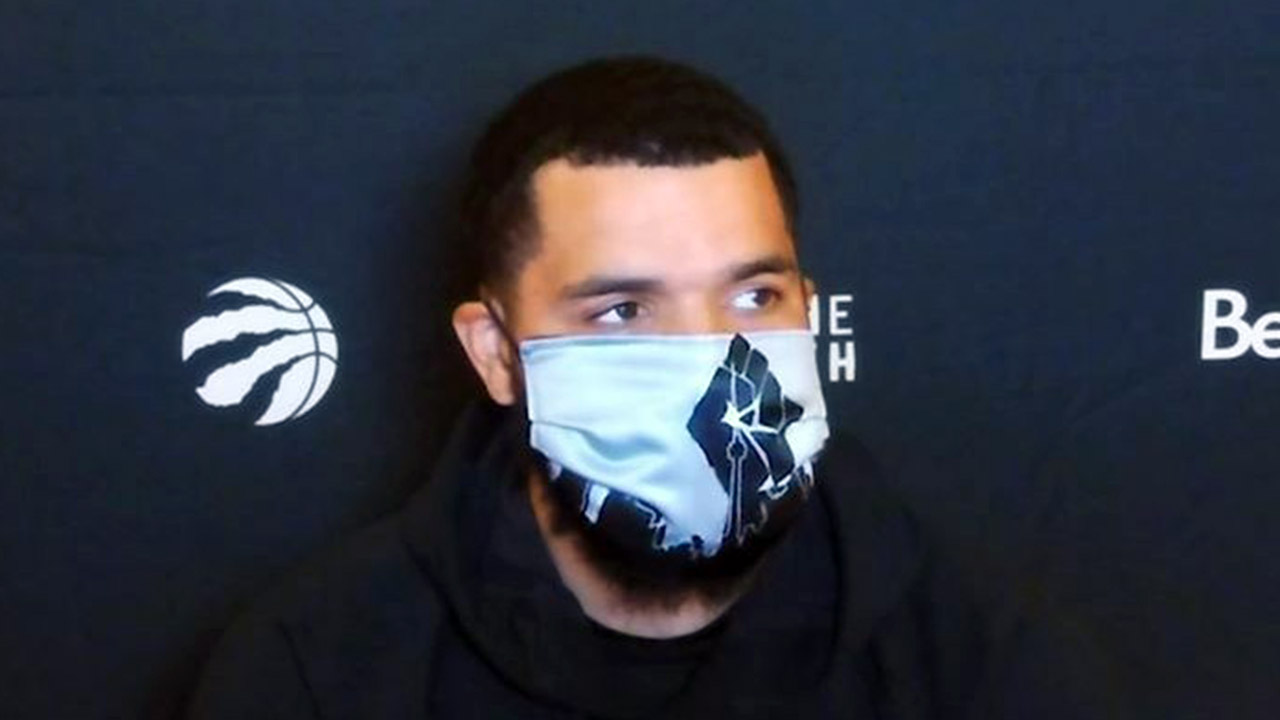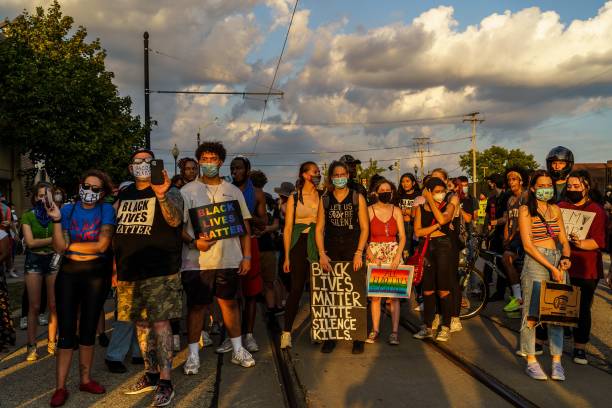With the NBA bubble burst, players turn frustration into action – The Undefeated
But the larger question remains: How can this indignation compel law enforcement to end its attack on African Americans?
Some will ask: Who will this boycott hurt? Does it really matter? This boycott reflects pain and frustration.
In an interview with Sirius XM NBA Radio on Wednesday, Lenny Wilkens, the Hall of Fame player and coach, expressed support for NBA players. Wilkens, 82, was part of a player movement in 1964 when NBA player threatened to boycott the NBA All-Star Game if owners did not recognize the players union.
“They’re showing you that they have feelings. They’re human beings. They read the papers. They see what’s going on,” he said. “Eventually, it adds up and it takes its toll.”
Over the decades, heinous acts of state-sponsored violence against Black people have inspired movements and elegant words.
Billie Holiday painfully sang “Strange Fruit” in reaction to seeing the horrid aftermath of lynchings. There has been Don’t Shoot, I Can’t Breathe, Say Her Name and Black Lives Matter. Now there are angry sounds coming out of the protective bubble.
What do you say when words are not enough, when gestures are no longer sufficient? What happens when your actions are no longer seen, your words fall on deaf ears and all that is left is unsatisfied justice?
Don’t play.
With or without basketball, the Raptors have earned our support – Raptors Republic
We’re left, ultimately, facing the same questions we were on May 25, when George Floyd died, on August 24, 2019, on July 13, 2015. Every day, really, in my life and for hundreds of years before that. Those questions ring beyond the borders of the United States, with an SIU report here in Toronto today absolving police of any guilt for the death of Regis Korchinski-Paquet.
NBA players are not supposed to be thought leaders or justice scholars. Those questions are not supposed to be left for professional athletes to answer. But here in this bizarre junction of our world, these mostly-20s-year-olds have microphones thrust in their faces multiple times a day, and they can only hide their true feelings for so long.
“We’re the ones always with the microphones in our face, we’re the ones always who have to make a stand,” said VanVleet on August 25.
At a certain point, players’ vulnerability in the world because of their skin colour, their absurd existence in a bubble, separate from pandemic and community and the injustices of the world, start to force the asking of those same questions. It was only a matter of time before players, with an immense platform and access to the ears of the world, started offering their answers. It’s painful that NBA players are faced with such a burden on their shoulders. It’s not fair. But it’s a credit to the entirety of the NBA, and especially those players on the Raptors and Celtics who have been leading the charge, that they’ve taken on the challenge.
At this point, the Raptors and Celtics may boycott, and they may not. Players have declined to say yet, as they haven’t decided. Players on the Raptors and Celtics met last night, and they are planning to meet again tonight. They’ve realized that awareness and continuing the conversation can only accomplish so much. To think you’re doing something so as to impact real change, and then to realize the world hasn’t changed in any way is destabilizing. Players are coming to terms with that reality. A boycott could go some way towards putting economic pressure on real power-brokers — like the NBA Board of Governors and team owners — to fight for change. To join the fight that NBA players are leading. NBA players have power like they never have before. Coming to Orlando was supposed to be one way to use that power. But the move hasn’t done enough, not even close, and now players are mulling other, more radical options. The Raptors represent Toronto, and Toronto should be proud of the behavior of those players on and off the court. We should be proud that they’re trying to do more, always fighting to improve the world that they’ve inherited.
We should support them however and whenever we can.
The Bucks Stop Play and Demand That the Real Work Begin – The Ringer
The Bucks made their statement on Wednesday not only with the clout of the NBA’s top team this season, but the authority of one based in the most segregated city in the United States. Blake’s shooting struck too close to home, particularly for players who were promised that they could use the game itself to promote change from inside the bubble. None has come. Most of the nation-wide legislative measures taken since Floyd’s death have been insultingly superficial, despite the efforts of the NBA’s players and the powerful demonstrations of activists around the country. Every trivial budget cut and incremental restructuring of a police department is an admission of how little our cities value Black lives. The complete failure of imagination in governance comes with its own body count.
Blake was shot seven times in the back at point-blank range, but he was as much a victim of the designs of American policing as he was the officer in question. The same underlying force pulled the trigger that killed 18-year-old Ty’Rese West in nearby Racine, pursued by officers because he rode his bicycle without a light. It empowered an officer in a Milwaukee suburb to kill 17-year-old Alvin Cole, his third shooting victim of color in five years. The Bucks know that they don’t have the power to redeem an entire culture of law enforcement. But they can start by seeking justice for Blake, and with a phone call to Wisconsin’s attorney general from their locker room.
Within hours of the Bucks’ protest, an entire day of NBA games had been called off in anticipation of player strikes—games featuring big-ticket superstars such as LeBron James, James Harden, and Chris Paul. The league itself was dragged toward something closer to real advocacy, after weeks of letting players wear one of 29 preapproved slogans on their jerseys and calling it social justice. Athletes and teams across the sporting world announced that they would sit out their own games in protest, from the neighboring Milwaukee Brewers to tennis sensation Naomi Osaka. Kenny Smith left his seat on Inside the NBA as a show of solidarity. By the day’s end, two especially meaningful developments had transpired: in a meeting of every NBA player in the bubble, the Lakers and Clippers—the two best teams in the Western Conference—reportedly voted to leave the Orlando bubble and sit out the remainder of the playoffs; and, more crucially, the U.S. Department of Justice announced an investigation into the shooting of Jacob Blake.
This is leadership. We should know it when we see it, if only because by now, we are so intimately familiar with its absence.
The day NBA players decided to strike for social justice – SBNation.com
Many NBA players were reportedly reluctant to come to the Disney bubble because they thought it would distract people from the movement for social justice going on in the streets following the murder of George Floyd by police in Minnesota. Players eventually agreed to head to the bubble so long as they could use their platform to shine a spotlight on systemic racism and police brutality. The NBA allowed certain league-approved messages on the back of jerseys, painted “Black Lives Matter” on the courts, and watched as players regularly turned their media availability into pleas to arrest murderous cops.
It couldn’t even last for a month before another unarmed Black man was unnecessarily shot by police. Shortly after the news of Blake’s shooting became public, Bucks guard George Hill said “We shouldn’t have even came to this damn place, to be honest.”
NBA players couldn’t be in the streets with protesters when they were trapped in the bubble. When the Bucks made the decision to boycott the game, the players found another way to take a stand.
Thursday’s games may be postponed now, too. The season feels like it’s hanging in the balance.
NBA players are showing us what real leadership and courage looks like. It’s an unprecedented move in league history and it could impact the immediate future of American sports as we know them.
One thing is for sure: basketball doesn’t feel important right now. There’s power in collective action, and the players have found it. Whatever happens next, this is one of the most powerful days in the history of the sport.
NBA Players Taking Fight for Social Justice into Their Own Hands | Bleacher Report
But contrary to what some bad-faith actors like to bring up when discussing the NBA’s ratings, the league’s politics are very middle-of-the-road. The rule about standing for the anthem is still on its books when there’s no reason for it to be. Silver and the league office also badly mishandled the fallout from Rockets general manager Daryl Morey’s October tweet in support of Hong Kong, under pressure to maintain their deeply lucrative business interests in China.
Their solutions to players’ concerns about the focus on social justice in the bubble—slogans on jerseys and courts—were not any less safe or focus-grouped than you’d expect from a billion-dollar corporation.
Whether the season finishes is up in the air. What is crystal clear is that on the players’ end, the desire to fight for a better life for themselves, their children and Black people throughout the country isn’t just talk. They’re willing to risk it all.
Do the owners care enough about their short-term money and the league’s long-term legacy to listen to them?



